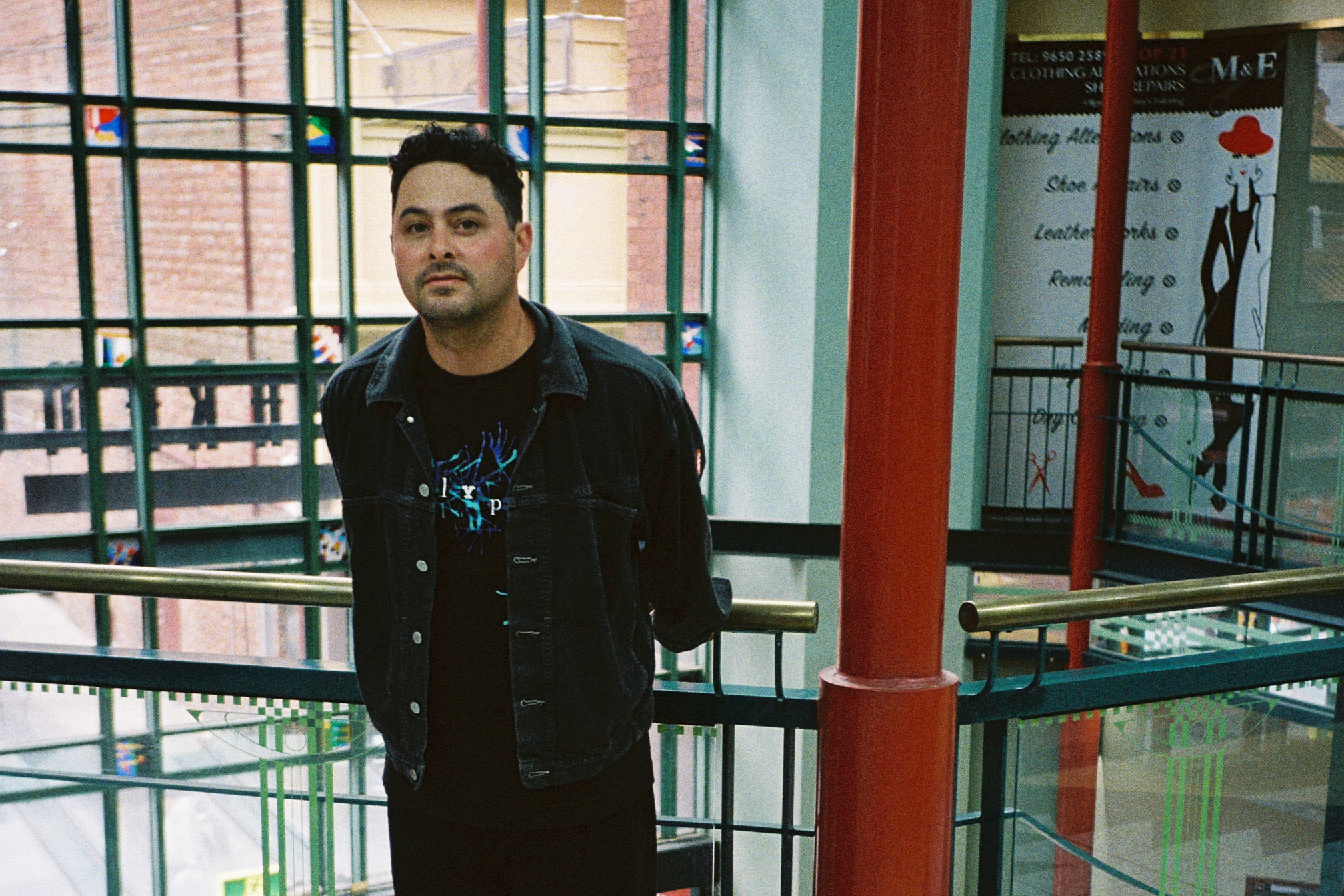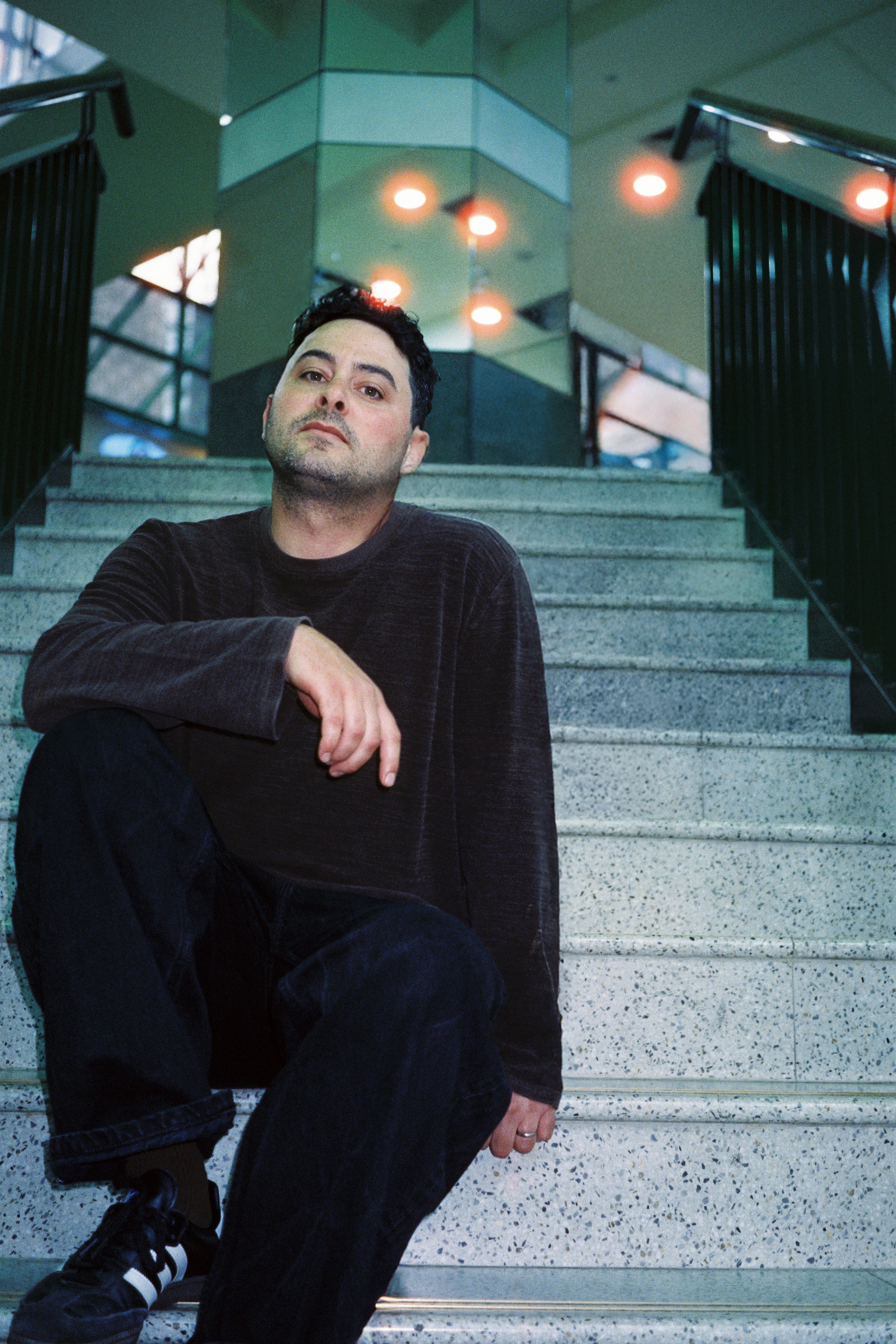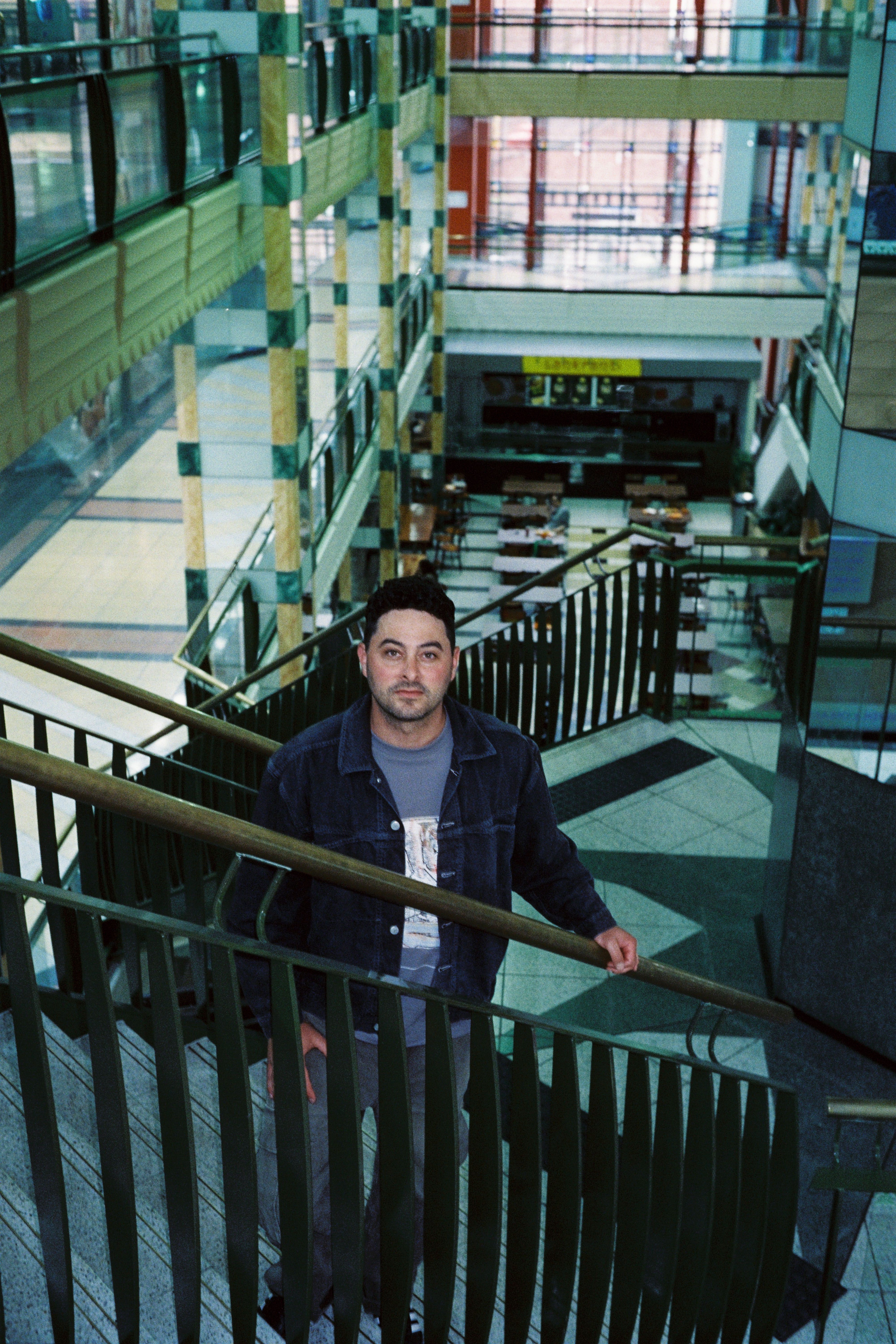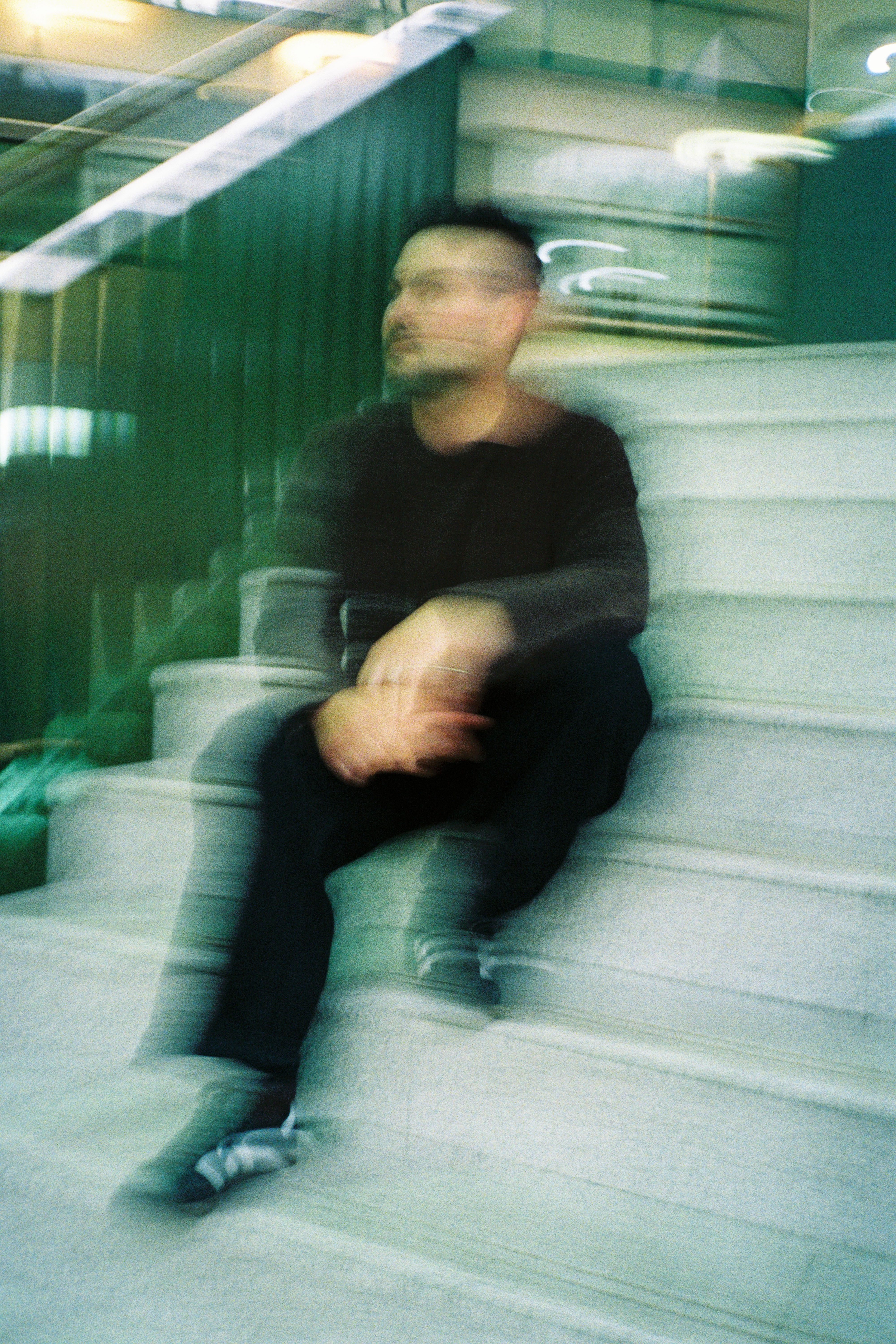 INTERVIEWS
INTERVIEWS
A state of stasis in Now Always Fades' 'Into The Doldrums'
The Naarm/Melbourne-based artist's first project under the new moniker sees him dropping a full-length album with little warning, & the reception has been impossible to ignore.
There’s a clear and comfortable merging of worlds currently being experienced in Australia and Aotearoa/New Zealand’s more ‘electronic’ spaces.
Perhaps as somewhat of a reaction to the ‘harder, faster’ mentality that is continuing to dominate the increasingly mainstream of these spaces, live elements, slower genres and vocals are being regularly intertwined into DJs sets, dedicated club nights, mix series and as bookings themselves.
The likes of Acopia, a.s.o, Hysterical Love Project, Dregs and Mike Midnight are just a few that come to mind when describing artists, groups and sounds that have increasingly occupied these spaces.
Now Always Fades is the latest addition to this growing roster, having just made an incredible debut in the form of a full-length record.
The project of Xavier Bacash, previously known under his Sonny Ism alias, Now Always Fades sees the singer, multi-instrumentalist and producer acting as director too. ‘Into The Doldrums’, NAF’s debut, is a project with sonic continuity while allowing room for other voices to be involved. Working not only with his own voice, but the vocals of Lili Hall and Tilly Vickers Willis, Bacash has created a revolving door available for vocal collaborators not only here, but across future works too, clearly all within the same emotional universe.
Elements of trip hop, electronica, shoegaze, and more are regularly paired alongside recorded and programmed instruments to give ‘Into The Doldrums’ the familiarity of a record you’ve heard a million times before, but is actually entirely new.
Having just moved back to Naarm/Melbourne after living in Copenhagen & Stockholm for some years, Bacash, his partner and their son have hit reset on a series of exhausting, emotionally tolling and beautiful experiences.
‘Into The Doldrums’ takes on an entirely new meaning when it’s paired with hints at what these were, and continue to be. Bacash was kind enough to answer some of our questions, just as the record found its way onto streaming services.

Q: Now Always Fades is a ‘flipping of the script’ of sorts compared to our last project, Sonny Ism. Can you explain what you’ve set out to do with this project that you weren’t getting with Sonny Ism?
NAF: Prior to exploring electronic soundscapes under Sonny Ism, I had been in bands for most of my life, and with the arrival of my son, I wanted to slow things down a bit musically. I had dabbled with vocals and songwriting structures with Sonny Ism, but I wasn't really being serious about it. I decided to make a project that threw some of that early live music DNA into the cauldron with the electronic music genres I had been cutting my teeth in more recently.
Q: You’ve been living overseas for some time, in both Copenhagen & Stockholm. Why did you decide to move back to Australia?
NAF: My wife's family lives about 7 hours from Stockholm, so being there was a bit pointless in terms of having a baby and getting support from family. Big shouts to Doc Jay and his wife Maria, who are our best friends back there, but we just felt otherwise lonely and that it was time to come and try living in Melbourne. I have no doubt we will live there again, though. Scandinavia is in the future in so many social and political areas.
Q: What do you think the move back to Australia can provide and challenge you with compared to living in Europe?
NAF: As much as I felt at home in Scandinavia and learned the language, made great friends, etc., I was never really considered a local artist, which I guess I understood. But I feel proud to be from Melbourne and that the NAF project calls this city home. Naarm is so diverse, and I feel optimism and resourcefulness exist here. Copenhagen and Stockholm are quite provincial and monocultural.
Q: Releasing an album as the first instalment of this project is a big undertaking. Why was releasing an album straight off the bat something that felt you had to do with Now Always Fades?
NAF: Albums are like the last great luxury of artists, and I felt the need to go against the grain of just adding EP after EP to the ecosystem and indulge one last time. Everything in life feels like it's moving to short-form, ‘takeout’ style offerings, so I guess in some ways it’s a protest against that, and to sound out any other stragglers out there like myself, who still enjoy putting an album on and listening to it start to finish.
I also just don't know how to convey ideas / stylistic concepts in any other way, and because this record felt like a creative rupture for me in my career, I think it needed an album to convey the tangent properly.

Q: Trip-hop is having a huge renaissance at the moment. Why do you think that is, in a musical world seemingly more concentrated on virality & ‘tracks’ than ever before?
NAF: After the boredom of COVID, everything sped up so much. Clubbing, particularly from my time in Copenhagen and Stockholm, became less about deep house parties and all about fast techno. Maybe in the hangover of all of that mayhem, people feel a little older, a little sleepier, and are looking now for tracks to accompany their post-Preston market duck ragu Sundays.
Q: The Doldrums are a space on Earth where, as I can tell, there is little wind, where the northeast and southeast winds converge. It’s also colloquially referred to as a state of stagnation or depression. Thematically, what do the doldrums mean for this project?
NAF: I read about the Doldrums somewhere and thought it represented where I was in my life, but in a good way - a state of stasis. I had always wanted to become a father, and as my wife went back to work and I became primary carer for my son during the day and then working on the music at night, I knew that the period of life I was entering was to become slower and I liked that. This new life began to inform the music coming out of me, basically turning the writing process into an album about reflection, processing, and catharsis.
Q: There’s a turmoil & a vulnerability that comes across so much of the lyrics on the record. Titles like ‘Close To Greatness’, ‘A Pain That I Used To Feel’, ‘Mayhem’ and others are aspirational but also equally melancholic. What has writing these songs given you emotionally now that they’re finished & out into the world?
NAF: My wife and I had a tough 2 years leading up to the making of this record. Before the birth of my son, our life was consumed with a profound sadness and anxiety attached to pregnancy loss and the loss of our daughter, Astrid, to stillbirth. Writing the record was a lot about not forgetting that time, but also letting go of it enough to accept that it was okay to feel happy again - that we had finally done what we had struggled to do for 2 years; become parents.
‘Close to Greatness’, in many ways, is kind of like a farewell to music. ‘Sleepy Head’ was written about Ingmar and the moments of having him in my arms in the middle of the night trying to get him back to sleep in the pitch black room just thinking, “fuck, I got to be a dad” I’m so grateful for him and he’ll never really know how much he saved me, and us. It’s a bit of a graveyard of emotions, but I really hope people can impart their own meaning onto the tracks.
Q: This record sees you pairing a lot of real instrumentation with electronically programmed drums, ambience & more. What has the process of writing this album been like, from song to song?
NAF: It was nice to put some air back into the songs (instruments like bass, guitar, vocals, drums). It gives you a lot of texture to work with and I’ve enjoyed being able to work within that framework and have more tools in the kit, as opposed to following the strictness of electronic music production, particularly around kicks and snares.
Q: You feature two key vocalists across the LP, including Lili Hall and Tilly Vickers-Willis. Why were these voices so key to the end product here?
NAF: Lili and Tilly are both so profoundly talented as artists and were so important to the songs we co-wrote together. They gave the record so much feeling and that shift in vocal energy, which I felt was going to be a great interplay between what I was coming at with the instrumentals and my own vocal style.
There is a light and shade there now that I don't think could be achieved with only my vocals.

Q: You’ve said that you like the idea that your music will see you acting as a director of sorts, “with a changing landscape of vocalists to keep the listener guessing.” Many musical projects feel the way they do because of a consistency in vocals, but you appear to be challenging that. Why is that something you’re setting out to do here?
NAF: It's mainly because I hate being cornered artistically or pigeonholed.
If the vocals change from song to song or album to album, I think it becomes harder for fans to pin the project down as one thing. It allows some growth maybe? Whereas I feel like once you’re kinda known for one thing or one voice, you can't really move out of that style, otherwise it can sometimes be too challenging for fanbases to go on that creative ride. I think it's why bands in the ’90s like Massive Attack aged so well, because there was always this revolving door of collaborators.
It's also super boring to make music alone! I love learning from other people.
Q: Sonny Ism’s music was a lot more ‘electronic’. There’s still a lot of guitar, but the vibe is generally more upbeat & the drums sound a bit more ‘programmed’. What lead you to move away from this sound, even slightly?
NAF: I felt over the low-fi / deep house thing towards the end of making Sonny Ism records. I have also been DJing and clubbing a lot in Copenhagen. I felt it was time to transition out of that stage of my life a bit, by making music that's stylistically underground but less functional for the club and more representative of my life as a father.
I was thinking about telling stories with NAF, bringing more verse-chorus structures, partly because I wanted Ingmar to be able to sing along to the stuff I was making, so I didn't ever have to play him things like Bluey or the Wiggles!
Q: How do you think that being a father & a partner has changed your approach to music?
NAF: Making music is a luxury now. I wouldn't have it any other way, but these days, I'm always working in a fatigued state. It's nice because you have to become less critical of the work and instead realise that time is precious and let as much come out as possible while you can. So, in some ways, it's made me mine into ideas out of a panic that time was running out and not get in my way by overthinking it.
Q: The response to the record thus far has been incredible. How does it feel to return home & to feel such support from community radio & the publications you’ve spoken with?
NAF: Oh, I'm honestly so grateful to everyone for all of the support. It makes me super emotional to feel like even anything I have to say artistically is getting some kind of community thumbs up. I honestly went into this record (and a few people can vouch for this) with the idea that it would be my last record, and I would maybe do some music in the future, but not albums or EPs, just a track here and there, because I felt so disheartened. I feel inspired to keep making music again now.
Q: There’s a slowness to NAF’s music that doesn’t fit in with the broader approach to music promotion. Was the promotion & the success of this record ever something you were conscious of while you were writing & recording? Why or why not?
NAF: There are two reasons for this. One is that I couldn't afford to pay for everything needed to make the album happen in one go. Mastering the record, pressing records, artwork, etc. But I also felt like there's so much noise out there, as I mentioned a little earlier, so it could end up being a good thing and allow word of mouth to have a chance to play a role in getting the record out there the old school way. Which I think it did.
Q: What do you hope that listeners take away from listening to this record?
NAF: Hopefully, listeners are always curious about what's next, but in the end, with the songs, I want people to interpret their own meaning into the music—hopefully, it becomes one of those records that represents a particular moment in time and ages well for them.
Q: What are your hopes for the future?
NAF: Playing live as an artist is an essential part of the feedback loop after being stuck in the studio making a record for so long. I’d love to do some shows with a small band across Australia and then ultimately Europe before I dive into another album.
-
Jack Colquhoun is Mixmag ANZ’s Editor, find him on Instagram.


